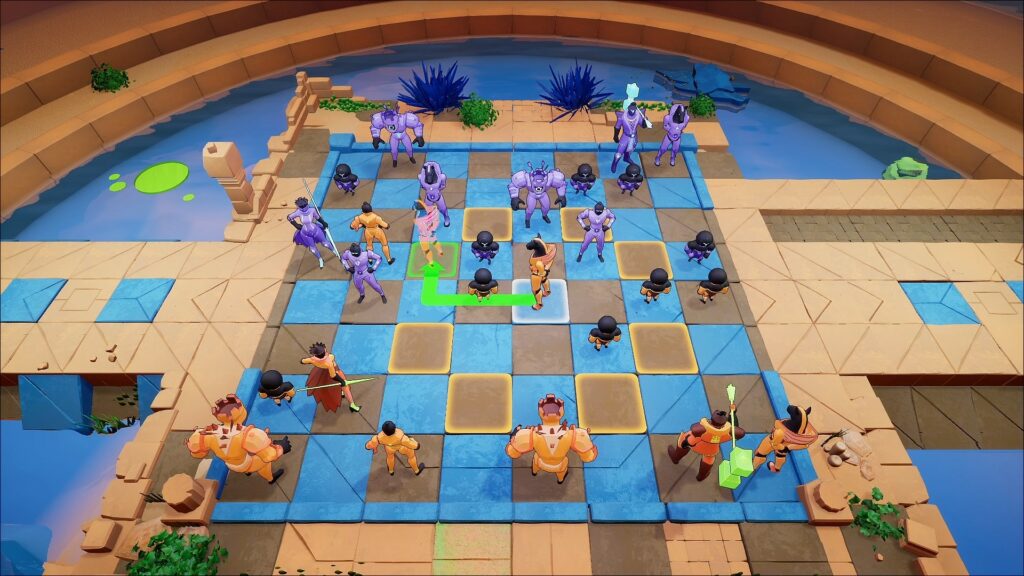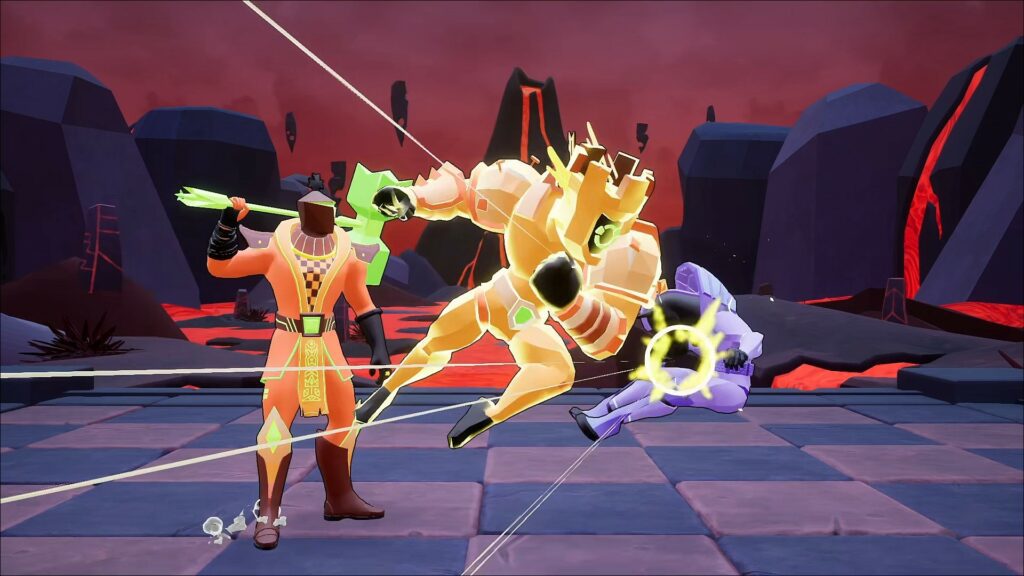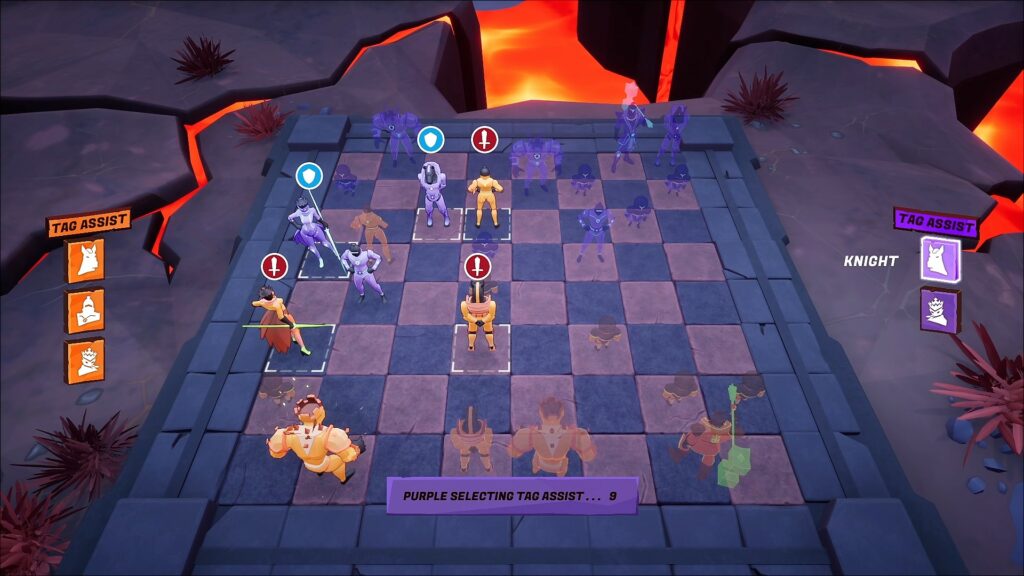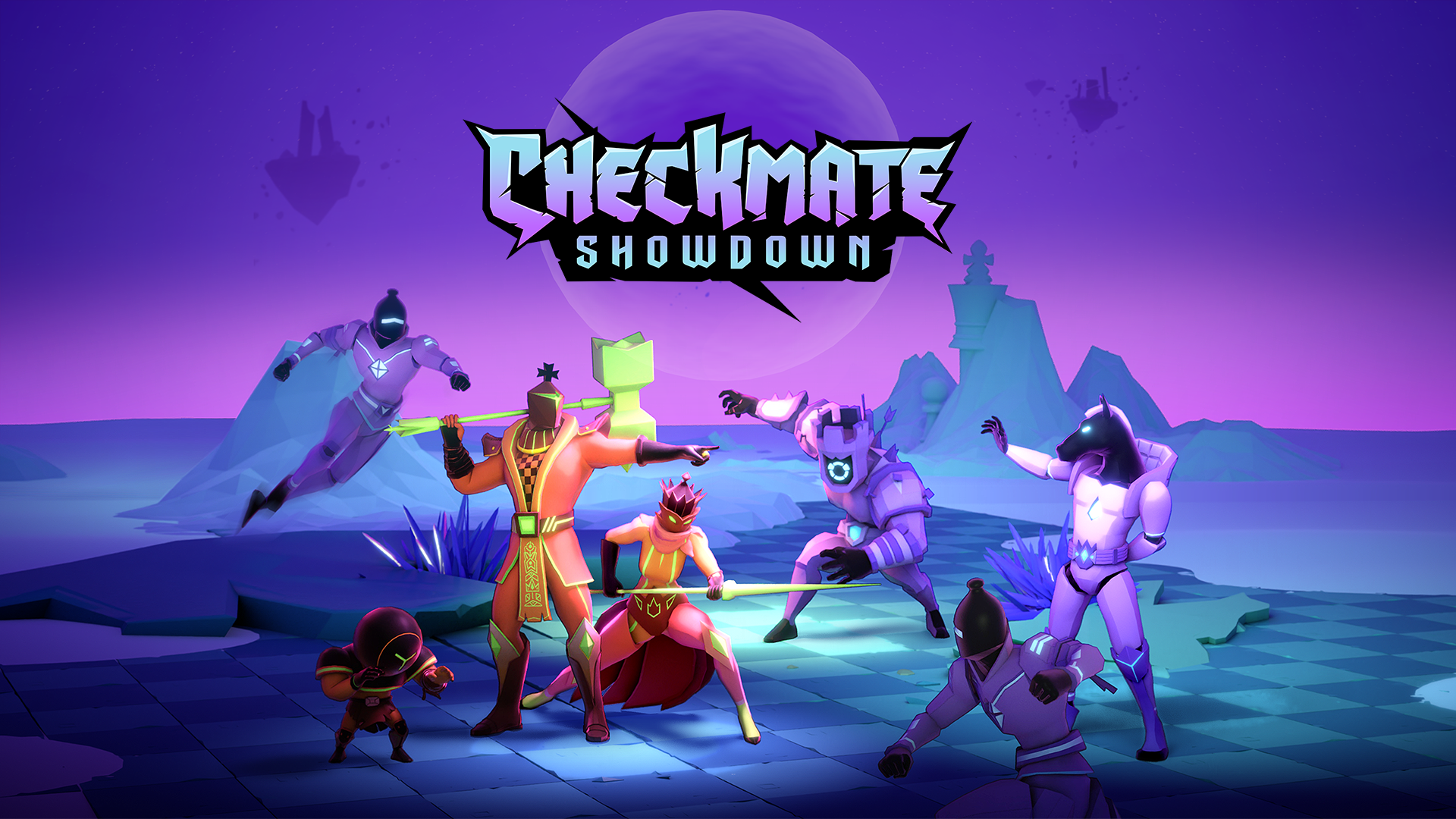“Checkmate Showdown” presents a unique fusion of chess and fighting games, aiming to blend strategic depth with action-packed gameplay. This ambitious title from Mana Void and Bad Rez Games attempts to captivate chess enthusiasts and fighting game veterans alike, but its success in this endeavor is a mixed bag.

The Chess-Fighter Hybrid: A Novel Concept with Uneven Execution At its core, “Checkmate Showdown” is inventive. The idea of turning chess piece captures into one-on-one fighting rounds is both audacious and appealing. The game’s roster, featuring fighters representing chess pieces like the Bishop, Knight, and Queen, each with a unique moveset and 1000 health points, adds to its charm. The integration of chess tactics, such as using defended spaces for assists and gaining advantages by initiating attacks, brings a fresh layer of strategy.
However, the fighting mechanics, while functional, lack the depth and polish of dedicated fighting games. The absence of core fighting elements like crouching, lows, overheads, and reliable anti-airs narrows the tactical possibilities. Air attacks and guard breaks dominate the meta, leading to gameplay that can feel unbalanced and overly aggressive. The result is a fighting experience that feels shallow compared to its chess counterpart, which remains largely faithful to traditional rules.

Visuals, Mechanics, and Accessibility The game scores points for its presentation and accessibility. The visuals are vibrant, and the combo system is intuitive, catering to both novices and seasoned players. The practice mode, complete with frame data, and the implementation of rollback netcode, are commendable features that enhance the gaming experience.
Yet, the lack of crouching and the simplified control system, while making the game more accessible, also strip away layers of depth that fighting game aficionados might expect. This design choice, intended to streamline gameplay, unfortunately leads to a lack of diverse tactical options and a somewhat monotonous combat experience.

The Balance of Power: Pawns and Kings The game’s most intriguing aspect is the unique role of Pawns. In “Checkmate Showdown,” Pawns can instantly capture any piece without triggering a fight, a mechanic that significantly alters both the chess and fighting aspects of the game. This gives the Pawns a strategic importance that can be both a strength and a vulnerability, adding a layer of complexity to the gameplay.
In contrast, the Kings, while being the ultimate objective, lack the defensive capabilities seen in traditional chess. The altered rule of allowing Kings to move into checkmate positions shifts the focus from strategic positioning to aggressive gameplay, a choice that might not sit well with chess purists.

Final Thoughts “Checkmate Showdown” is an experiment that shines in its ambition but stumbles in execution. Its unique concept and engaging chess mechanics are somewhat overshadowed by the less polished fighting game elements. While it offers an interesting blend of strategy and combat, the game might leave enthusiasts of both genres wanting more. It’s a title worth trying for its novelty, but it may not fully satisfy those seeking depth in either chess or fighting game mechanics.

Helrato, or Hel for short, is your typical young gamer from Australia who grew up with an older brother that introduced him to gaming. That same older brother would give him an unplugged controller and told him that he was playing, and that's how Helrato's journey into games started - by believing he was playing something when in fact he wasn't playing anything.
Helrato's favourite game franchises include Assassin's Creed, Age of Empires, Call of Duty, Final Fantasy and Metal Gear Solid. With his old favourite games of all time being Brigandine: The Legend of Forsena, Legaia 2 and Dark Chronicle (Dark Cloud 2). If you know those games, mad respect.
When he's not writing reviews, he's playing games, when he's not playing games, he's thinking about playing games, when he's thinking about playing games, he's at work - not playing games.






Comment here